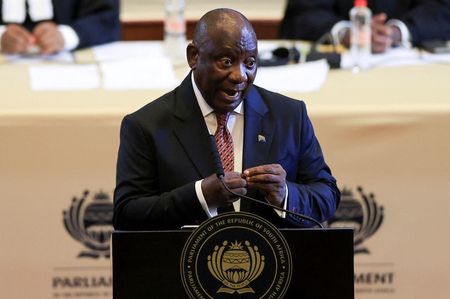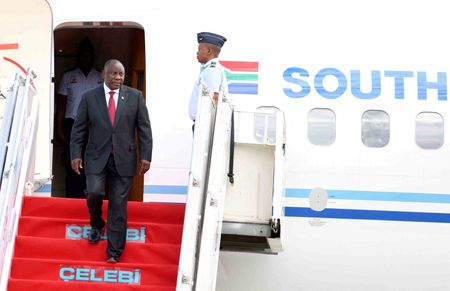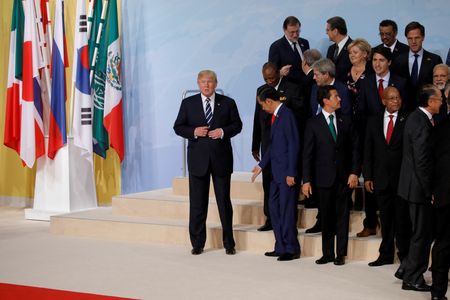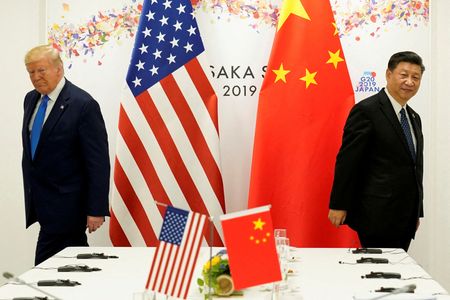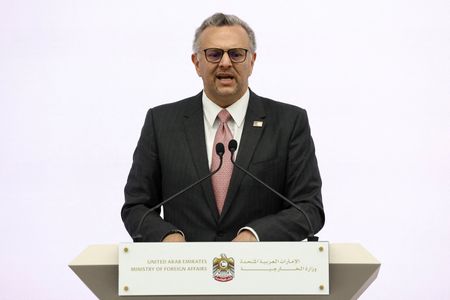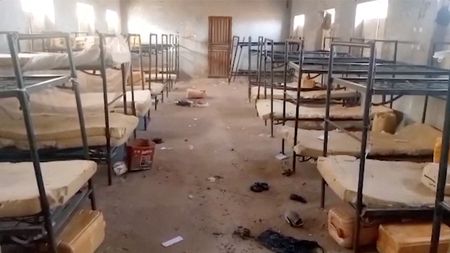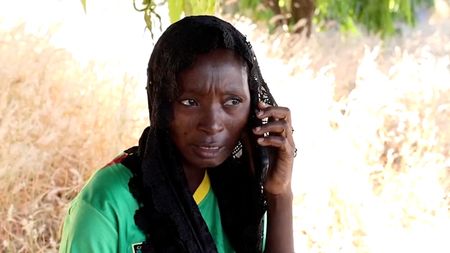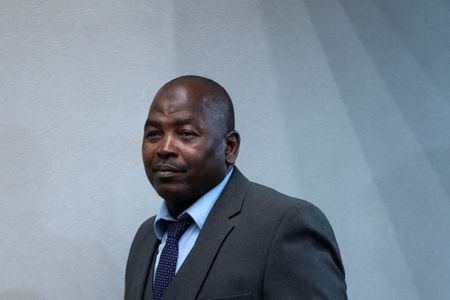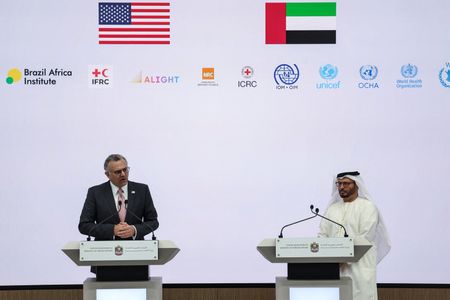By Kopano Gumbi and Olivia Kumwenda-Mtambo
JOHANNESBURG (Reuters) – South Africa’s G20 presidency was meant to be an opportunity to get rich, powerful nations to pay attention to poorer countries’ concerns such as burgeoning inequality, crippling sovereign debt and a lack of progress in the fight against climate change.
But the richest, most powerful member, the United States, is not on board. Secretary of State Marco Rubio said on Feb. 6 South Africa’s G20 goals were “very bad” and he would not attend next week’s meetings with his G20 counterparts in Johannesburg.
In a broader attack on South Africa, President Donald Trump cut U.S. financial assistance to the country, citing disapproval of its land redistribution policy and of its genocide case against Israel at the International Court of Justice.
The U.S. stance “seems to be aimed at making sure that South Africa doesn’t hold a successful G20”, said Ongama Mtimka, acting director at the Raymond Mhlaba Center for Governance and Leadership at the country’s Nelson Mandela University.
Launched after the 2007-08 financial crisis to include big emerging economies in talks that had previously been confined to the Group of Seven Industrialised nations, the G20 is supposed to be a key venue for economic and financial cooperation.
It is also seen as vital to shaping the response to climate change, as G20 nations account for 85% of the world economy and more than three-quarters of climate-warming emissions.
But the Trump administration’s hostility calls into question the forum’s relevance, analysts said.
“The bigger question that one has to ask is what is G20 without the United States?” said David Monyae, director of the Centre for Africa-China Studies at the University of Johannesburg.
“The implications are much bigger than South Africa … It means the collapse of the G20 process itself,” he said. “I do not think we are there yet, but … we seem to be crawling towards that.”
CHINA OFFERS SUPPORT
President Cyril Ramaphosa has said he wanted to use his country’s G20 presidency to address climate change and fairer finance for poorer nations. South Africa, like many other countries, spends more on servicing debt than on health.
Foreign ministry spokesperson Chrispin Phiri said Pretoria enjoyed “strong support from other G20 countries” for its agenda, and would “continue with our theme and priorities” regardless of U.S. objections.
Mtimka said Washington’s attitude was likely to benefit its adversaries, handing over leadership of the G20 to China and Russia “on a silver platter”.
China’s President Xi Jinping played a central role at the last G20 summit in Brazil, announcing a raft of measures to support emerging economies.
Chinese Foreign Minister Wang Yi will attend the February 20-21 meetings in Johannesburg, as will Russia’s Sergei Lavrov.
“China attaches great importance to G20 cooperation and is willing to work with all parties to support the work of the South African presidency,” said Beijing’s foreign ministry.
Russia’s Interfax news agency quoted a foreign ministry official on Monday as saying that several G20 members from the developing world had already approached Russia with proposals and were keen to meet Lavrov in Johannesburg.
G20 power dynamics are complicated by membership overlap with the BRICS, a bloc that was formed to challenge a world order dominated by the United States and its Western allies. China, Russia, Brazil, India and South Africa are members.
Trump last month warned BRICS members against replacing the U.S. dollar as a reserve currency, repeating a 100% tariffs threat he had made weeks after winning the U.S. presidential election.
The G20 foreign ministers’ meeting is due to be followed by a finance ministers’ meeting on February 26-27, which U.S. Treasury Secretary Scott Bessent has not said if he will attend.
South Africa holds the G20 presidency until December, when it hands over to the United States. A leaders’ summit is scheduled for November.
(Additional reporting by Nellie Peyton and Sfundo Parakozov in Johannesburg, Ryan Woo in Beijing and Vladimir Soldatkin in Moscow; Writing by Kopano Gumbi; Editing by Tim Cocks, Estelle Shirbon and Alex Richardson)

